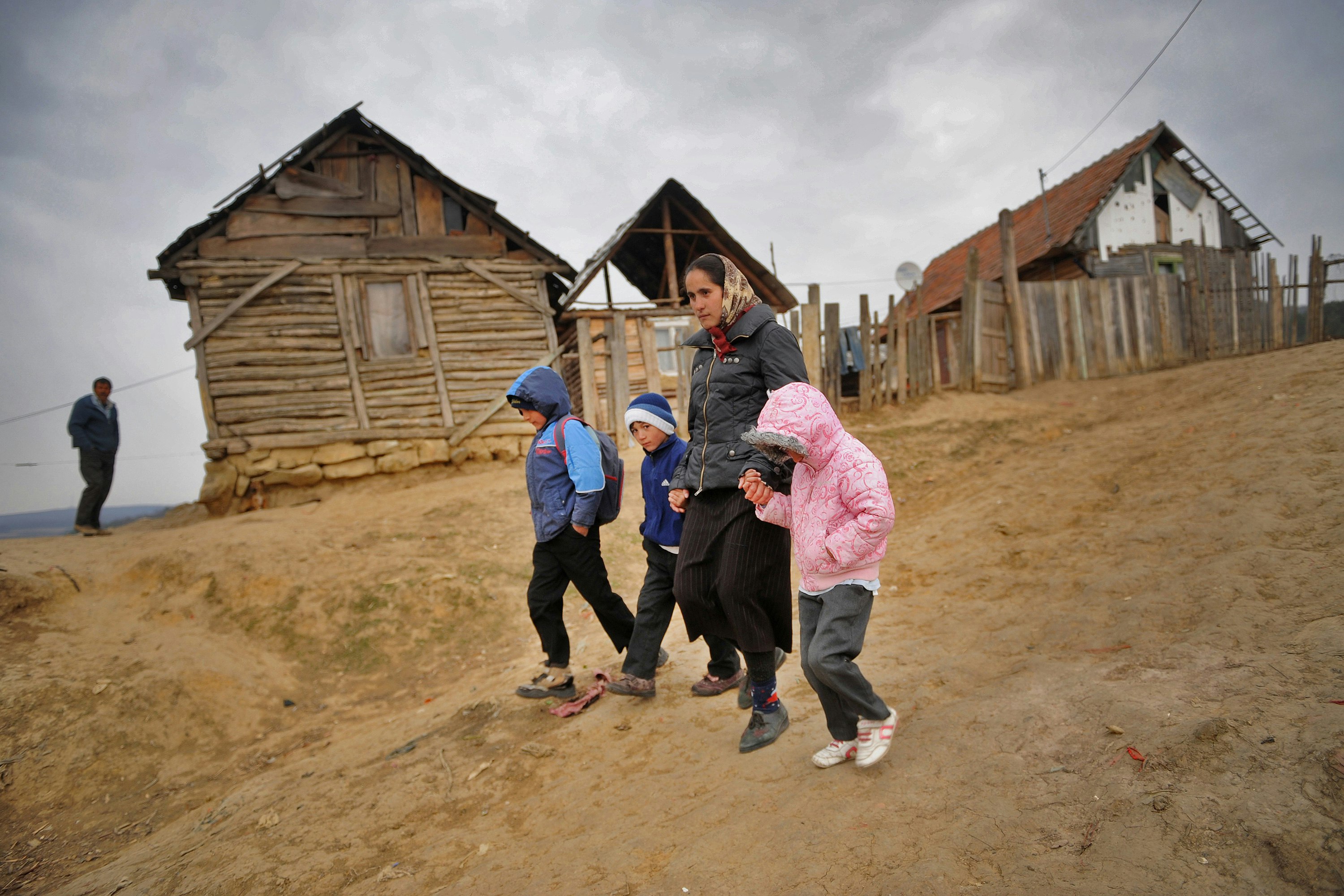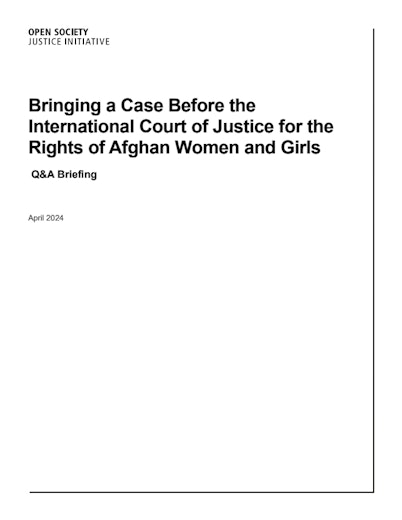Nikolova v. CEZ Electricity
Collective race discrimination outlawed in clear ruling of European Union’s highest court
In predominantly Roma districts across Bulgaria, a major electricity company put all the electricity meters at the top of very high poles, a potent symbol that stigmatized the entire community. The electricity company, CEZ Razpredelenie Bulgaria AD (CEZ), did this to every consumer in the district, regardless of their payment history, and only in Roma districts. On a complaint by a local shopkeeper, Anelia Nikolova, the Bulgarian Anti-Discrimination Commission (ADC) ruled that the practice was race discrimination and ordered it to end. CEZ appealed to the Sofia Administrative Court, which referred questions to the Court of Justice of the European Union (CJEU). The CJEU confirmed that the EU Race Equality Directive. It ruled that if the Roma ethnicity of the residents had led to the practice, it was unlawful direct discrimination. If CEZ proved that its decision had been entirely a response to safety concerns, and in no way related to ethnicity, the practice would still be – in the judgment of the CJEU – unjustified indirect discrimination. The stigmatizing effects of a practice applied without distinction to every person in the district was so harmful it could not be legally justified. The case returned to the national court for a final decision. Before judgment was given, CEZ reached an agreement with the Bulgarian legal NGO, Equal Opportunities Initiative, to change the meters to an acceptable height, through discussion with the affected communities.
Facts
CEZ supplied electricity to a shop run by Anelia Nikolova in Gizdova, a mainly Roma district in the town of Dupnitsa, Bulgaria. Until 1999, electricity meters in Gizdova were easily accessible, as anywhere else in Bulgaria. Then, across Bulgaria, the electricity company put electricity meters out of easy reach of householders on tall poles (as high as 7 meters, or over 22 feet) but only in districts seen as the home of Roma communities. Unable to read their meters, electricity users could no longer check that their electricity usage was being correctly recorded. This change, supposedly to address theft and interference with the meters, was opposed by residents of the districts affected as unfairly stigmatizing all of them as thieves.
In 2008, Ms. Nikolova protested her electricity bill to CEZ . Believing the bill was inflated, she asked the company to relocate her meter to a normal height, so that she could monitor her electricity consumption. CEZ refused, informing her that she could request an additional check of her meter by the company’s staff or could have it placed at her home for an extra fee. Ms. Nikolova complained to the ADC. Though not herself Roma, she argued CEZ’s practice was discrimination on racial or ethnic grounds, because CEZ did this to every resident in Gizdova, as a Roma district, but nowhere else in Dupnitsa. The practice implied all the citizens of Gizdova were not trustworthy enough to access and read their own meters and so stigmatized a whole community. Armed with material in which CEZ had cited Roma ethnicity as a factor for its decisions, the ADC agreed with Ms. Nikolova and upheld her case. CEZ appealed to the Sofia Administrative Court, which decided the case raised questions of EU anti-discrimination law.
Open Society Justice Initiative Involvement
The Justice Initiative represented Ms. Nikolova in the proceedings before the CJEU in Luxembourg. When the case returned to the Bulgarian court, the Justice Initiative worked with Equal Opportunities Initiative, Bulgaria’s leading legal NGO for Roma people, to implement the decision.
Arguments
In submissions to the Court, the Justice Initiative argued for an inclusive, effective interpretation of EU race-equality law.
Concept of “discrimination based on racial or ethnic origin” in the EU Racial Equality Directive 2000/43 and the EU Fundamental Rights Charter. This must be interpreted to include discrimination based on race, color, descent, national or ethnic origin, and membership of a national minority, and prohibits discrimination based on Roma origin. Discrimination is “based on” racial or ethnic origin, when it is based on actual, perceived, or even assumed racial or ethnic origin. A practice based on the racial or ethnic origin of persons living in a specific district is prohibited even if some of the people living in the district are not from the minority group. Any person affected by such a practice can claim to be a victim of discrimination based on racial or ethnic origin.
Threshold for discrimination. Any measure which leads to less favorable treatment or a disadvantage is capable of amounting to discrimination. It is not necessary to show that there was particularly serious or demonstrably significant disadvantage. The practice adopted by the electricity company amounts to less favorable treatment and is a disadvantage for electricity users and residents of the districts affected.
Direct discrimination. The practice explicitly targeted actual or perceived “Roma districts,” so the electricity company has the burden of proving that this choice was not “based on” Roma racial or ethnic origin. The Justice Initiative argues that the national court was correct to decide that the electricity company had not disproved this, and so there was unlawful direct discrimination.
Indirect discrimination. Even if the company’s choice of district was based exclusively upon considerations other than racial or ethnic origin, the practice inevitably promotes racist assumptions against Roma people, such that is contrary to the founding principles of the EU and thus is incapable of being justified. The policy has had the effect of disproportionately and negatively affecting the Roma community living in Gizdova mahala, for which there is no objective and reasonable justification. Any legitimate concerns about theft and interference with meters must be dealt with on a case-by-case basis, in a reasonable and proportionate way, rather than by stigmatizing entire communities.
The case was the first time the Court of Justice had considered discrimination against a district of residents. The Court made a number of significant findings:
- The EU Race Equality Directive prohibition on “discrimination on the grounds of race or ethnic origin” applies not only to persons of the ethnic origin in question, but also to anyone who suffers less favorable treatment or a particular disadvantage on account of a discriminatory measure.
- It amounts to unlawful direct discrimination where ethnic origin determined the decision to impose a less favourable treatment.
- The CJEU advised the national court that, even if the CEZ practice is not direct discrimination, it nevertheless does put Roma at a particular disadvantage compared to people living in districts where the meters are at a normal height, so is indirect discrimination unless it can be properly justified on the basis of the legitimate aims of preventing and combatting fraud and abuse and ensuring the security and quality of the energy network.
In January 2016, CEZ adopted a plan to pilot alternative metering for affected Roma communities. In February, CEZ began replacing meters in Dupnitsa and Ihtiman with accessible ‘smart meters’, for more than 900 households, including Ms. Nikolova’s. In two other Roma communities, in Sofia and Byala Slatina, CEZ planned to pilot secure boxes accessible only to customers, each with 25 smart meters inside.
Equal Opportunities and the Justice Initiative accepted this plan at a hearing in January 2016 at the Sofia Administrative Court. Equal Opportunities has continued to meet with CEZ to ensure that the communities are consulted and to monitor implementation of the plan.
CEZ plans further meetings with affected Roma communities to plan relocating remaining meters.
CEZ completes pilot of relocating meters.
CEZ begins relocating meters for 900 homes in Dupnitsa and Ihtiman districts.
Sofia Administrative Court adjourns hearing for CEZ to pilot relocating meters.
CEZ meets with Equal Opportunities and Justice Initiative.
CJEU rules in favor of Nikolova.
Opinion of Advocate-General Kokott of CJEU delivered in the case.
CJEU held oral hearing.
Justice Initiative files observations with CJEU on behalf of Nikolova.
Sofia Administrative Court refers questions to CJEU in Nikolova case.
June 5, 2014. Justice Initiative files observations with CJEU on behalf of Nikolova.
CJEU dismisses Belov reference as inadmissible.
Commission upholds Nikolova’s complaint again.
Supreme Administrative Court sets aside Commission decision and directs it to reconsider.
Commission upholds Nikolova’s complaint.
Nikolova complains to Commission at failure of company to relocate meter.
Nikolova requests electricity company to relocate her meter.
Related Work
Case Watch: Roma Ruling Advances Antidiscrimination Protections in the European Union
Legal efforts to protect Europe’s Roma minority from racial discrimination have been given a substantial boost by the European Union's top court.
Case Watch: European Court Finds Ethnic Profiling by the Police Discriminatory
For the first time, the European Court of Human Rights has used the consequential phrase “ethnic profiling” in a ruling concerning a police action it considered discriminatory.

Q&A: Bringing a Case Before the International Court of Justice for the Rights of Afghan Women and Girls
This paper considers 21 questions around the feasibility of bringing a complaint at the International Court of Justice against Afghanistan's Taliban for egregious and prevalent violations of women’s and girls’ rights.
